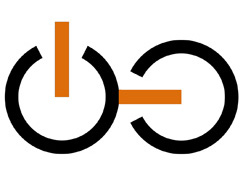In this page...
Information about Speakers, Topics, Schedule, Exams, Course Material & Resources, Social Events.
Speakers
The 2011 DALT Spring School is proud to announce among its lecturers:
- Rafael Bordini, Federal University of Rio Grande do Sul, Brazil
- Peter McBurney, King's College London, UK
- Birna van Riemsdijk, Delft University of Technology, The Netherlands
- Francesca Toni, Imperial College London, UK
- Wamberto Vasconcelos, University of Aberdeen, UK
Topics
The 2011 DALT Spring School will propose courses on declarative approaches in the following areas (click on course title to toggle abstract on/off):
- Agent Reasoning: Knowledge, Plans and Flexible Control Cycles
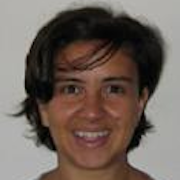 I will present the KGP (Knowledge, Goals and Plan) model of agency. This model allows the specification of heterogeneous agents that can interact with each other, and can exhibit both proactive and reactive behaviour allowing them to function in dynamic environments by adjusting their goals and plans when changes happen in such environments. The KGP model provides a highly modular agent architecture that integrates a collection of reasoning and physical capabilities, synthesised within transitions that update the agent’s state in response to reasoning, sensing and acting. Transitions are orchestrated by cycle theories that specify the order in which transitions are executed while taking into account the dynamic context and agent preferences, as well as selection operators for providing inputs to transitions. Cycle theories are means to program the control of agents in a flexible and adaptable manner. I will also present an argumentative variant of the KGP model, where reasoning capabilities are supported by argumentation. (COST Lecturer: Francesca Toni).
I will present the KGP (Knowledge, Goals and Plan) model of agency. This model allows the specification of heterogeneous agents that can interact with each other, and can exhibit both proactive and reactive behaviour allowing them to function in dynamic environments by adjusting their goals and plans when changes happen in such environments. The KGP model provides a highly modular agent architecture that integrates a collection of reasoning and physical capabilities, synthesised within transitions that update the agent’s state in response to reasoning, sensing and acting. Transitions are orchestrated by cycle theories that specify the order in which transitions are executed while taking into account the dynamic context and agent preferences, as well as selection operators for providing inputs to transitions. Cycle theories are means to program the control of agents in a flexible and adaptable manner. I will also present an argumentative variant of the KGP model, where reasoning capabilities are supported by argumentation. (COST Lecturer: Francesca Toni). - Agent Reasoning: Goals and Preferences
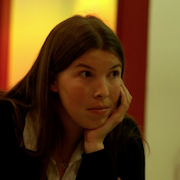 In this course we will investigate how motivational attitudes like desires, goals and intentions have been and are being used to represent and program agent reasoning. We will consider both theoretical approaches for investigating these notions and their interplay, as well as ways of using these notions to develop cognitive agents. The GOAL agent programming language in which the notion of goal is important will be used for illustration. Recent results from empirical studies on how GOAL is used to program agents that control bots in Unreal Tournament will be presented.
(Lecturer: Birna van Riemsdijk).
In this course we will investigate how motivational attitudes like desires, goals and intentions have been and are being used to represent and program agent reasoning. We will consider both theoretical approaches for investigating these notions and their interplay, as well as ways of using these notions to develop cognitive agents. The GOAL agent programming language in which the notion of goal is important will be used for illustration. Recent results from empirical studies on how GOAL is used to program agents that control bots in Unreal Tournament will be presented.
(Lecturer: Birna van Riemsdijk).
- Agent Interaction: Languages, Dialogues and Protocols
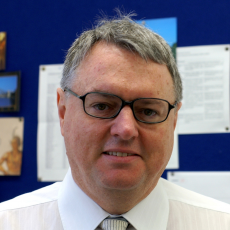 In this course we will explore the design and engineering of artificial
communications languages and protocols to enable autonomous, intelligent
software agents to communicate with one another. The design of these
languages and protocols draws on human linguistics, on the philosophy of
language and dialog, on formal logic, and on the theory of computer
programming languages. We will look at the syntax, semantics, and
pragmatics of multi-agent languages and protocols, and consider related
issues such as dynamic (run-time) composition of protocols and the efficient
storage and retrieval of protocols. (Lecturer: Peter McBurney).
In this course we will explore the design and engineering of artificial
communications languages and protocols to enable autonomous, intelligent
software agents to communicate with one another. The design of these
languages and protocols draws on human linguistics, on the philosophy of
language and dialog, on formal logic, and on the theory of computer
programming languages. We will look at the syntax, semantics, and
pragmatics of multi-agent languages and protocols, and consider related
issues such as dynamic (run-time) composition of protocols and the efficient
storage and retrieval of protocols. (Lecturer: Peter McBurney).
- Agent and Multi-Agent Software Engineering: Modelling, Programming, and Verification
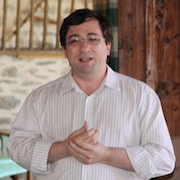 This course aims at providing an overview of three important parts of the practical development of multi-agent systems: modelling, programming, and verification. In particular, we will cover approaches for multi-agent systems that are based on abstractions, techniques, and tools that have been specifically tailored for autonomous agents and multi-agent systems. Besides surveying various approaches that appeared in the Agents literature for each of the three parts of the development process, we will focus the concrete examples of the Programming part on the recently put together JaCaMo platform
(Lecturer: Rafael Bordini).
This course aims at providing an overview of three important parts of the practical development of multi-agent systems: modelling, programming, and verification. In particular, we will cover approaches for multi-agent systems that are based on abstractions, techniques, and tools that have been specifically tailored for autonomous agents and multi-agent systems. Besides surveying various approaches that appeared in the Agents literature for each of the three parts of the development process, we will focus the concrete examples of the Programming part on the recently put together JaCaMo platform
(Lecturer: Rafael Bordini).
- Organisation, Coordination and Norms for Multi-Agent Systems
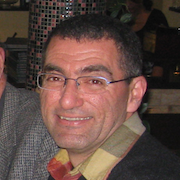 This course will introduce organisation theory concepts for agents and multi-agent systems; some of these concepts are objectives, roles and their relations, power, and capabilities, to name a few. We shall then use organisation concepts to create/synthesise stereotypical agents which will “embody” aspects of the organisation: these agents will coordinate efforts in order to find and enact a joint plan to achieve individual and organisational objectives. We explicitly represent norms, that is, permissions, prohibitions and obligations, as means to “fine-tune” the coordination/planning effort, ruling out certain courses of actions or giving preference/priority to other courses of actions. The course will make use of the tools and methodology of the EU-funded ALIVE project.
(Lecturer: Wamberto Vasconcelos).
This course will introduce organisation theory concepts for agents and multi-agent systems; some of these concepts are objectives, roles and their relations, power, and capabilities, to name a few. We shall then use organisation concepts to create/synthesise stereotypical agents which will “embody” aspects of the organisation: these agents will coordinate efforts in order to find and enact a joint plan to achieve individual and organisational objectives. We explicitly represent norms, that is, permissions, prohibitions and obligations, as means to “fine-tune” the coordination/planning effort, ruling out certain courses of actions or giving preference/priority to other courses of actions. The course will make use of the tools and methodology of the EU-funded ALIVE project.
(Lecturer: Wamberto Vasconcelos).
Schedule (up)
The final schedule is also available for download (pdf). This is how you will use your time in Bertinoro :-)

Exams (up)
The school will organize student examinations, on demand. For Italian students, the participation to all courses and successful result of the examination will correspond to 2 CFU.
ISCL 2011 (up)
Registration to the DALT School will grant bonus access to any one of the courses of the co-located Third International School on Computational Logic.
Lecture Notes & Resources (up)
Rafael Bordini. Online Resources. Material is available on the course home page.
Software. You can download Jason from sourceforge. It is advised (but not required) that you bring your laptop and, before the school, install Jason and try run the example available from JaCaMo.
Peter McBurney. Online Resources. Here you can download the lecture slides (pdf) (ppt).
Francesca Toni.
Online Resources. Here you can download the lecture slides (pdf).
References.
- A. Kakas, P. Mancarella, F. Sadri, K. Stathis & F. Toni. Computational Logic Foundations of KGP Agents, Journal of Artificial Intelligence Research, 33:285-348, 2008.
- F. Toni. Argumentative KGP agents for service composition. In Proc. AAAI Spring Symposium on Architectures for Intelligent Theory-Based Agents. Stanford University, California, USA, March 26-28, 2008.
Birna van Riemsdijk. Online Resources. Here you can download the lecture slides (intro, programming 1, 2, 3). Software available from the GOAL home page.
Wamberto Vasconcelos. Online Resources. Material is available on the course home page.
Social Events (up)
Social events are jointly organized with ISCL.
Dinners in Bertinoro. Dinners at restaurant are scheduled for Monday at Nuovo Bistrot Colonna and on Thursday at La Grotta. On Tuesday evening dinner will be served at CEUB's canteen.
Social Trip. There will be a social trip to the UNESCO World Heritage Site city of Urbino. The social trip will start at 14:30 on Wednesday. On the way back, we will eat dinner in Pesaro at Locanda Ciacci.
